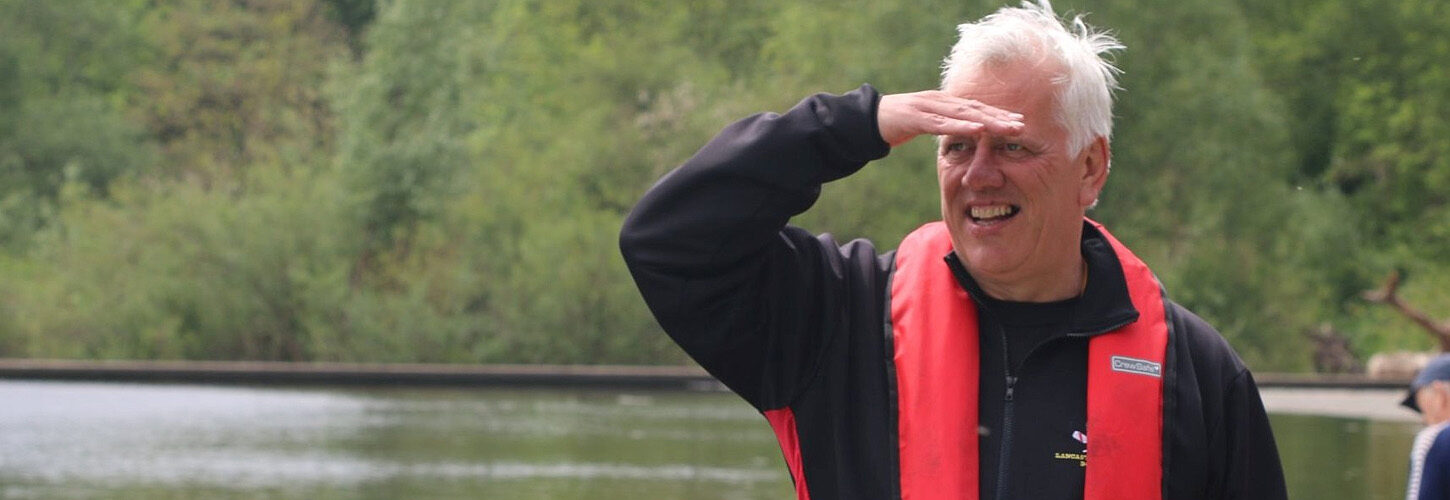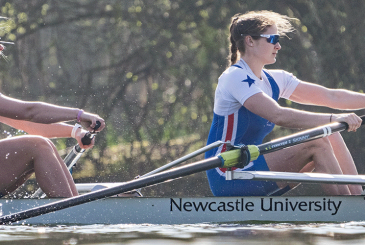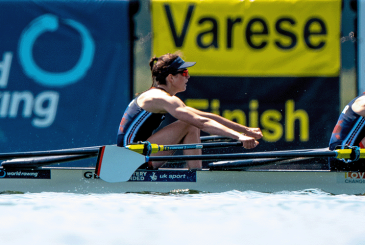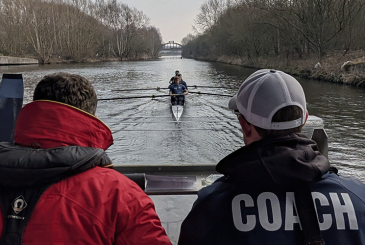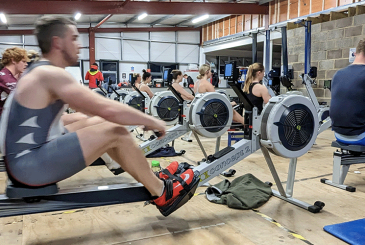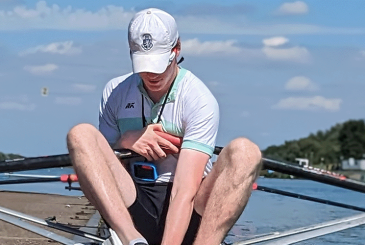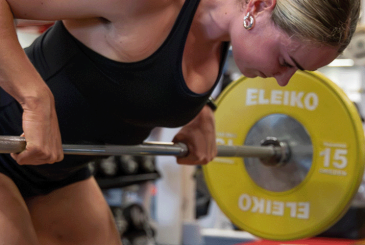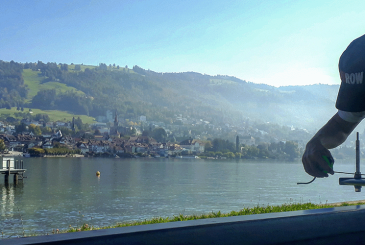Tim Morris talks about his passion for coaching and how completing the Level 4 qualification has enhanced his approach
Despite his 50 years’ experience in rowing, studying for a Level 4 coaching qualification showed Durham ARC coach Tim Morris that there’s always more to learn. “It’s pretty well altered the way I think about everything I do in coaching,” he says. “I’ve gained as a coach but, more importantly, as a person.”
The Level 4 consists of a Postgraduate Diploma in Professional Sports Coaching delivered over two years by the University of Gloucester, combined with a wrap-around element delivered by British Rowing.
“I always promised myself that when I retired, I would do a degree and it was an opportunity to gain a degree-level qualification in something I love.”
For someone who left school with five O Levels, it was a big challenge, but the tutors were “brilliant”, he says. “I’m the son of a Welsh miner and there’s nobody in my family who’s been to university, even in the next generation. I get excited just thinking about it to be honest. I got a distinction and that’s bonkers.”
“I started to recognise there were areas I needed to be better at and the only way was to join British Rowing’s coach development pathway”
Tim, who has a dual role at Durham as a paid Learn to Row and Development coach and a volunteer working with the senior women’s and men’s squads, started coxing at Bewdley RC aged 11. By the time he was 18, he had moved into rowing. “I was pretty successful on the Midlands circuit as a club rower, but never broke through into international level. I was simply not the right morphology.” His proudest achievements are a win in the Veterans Eights at the 1999 National Championships and going on to just miss out in the Henley final. “I’m still bitter about that,” he laughs.
Over the years, he’d dabbled in coaching but took it up seriously in 2009, when he began to step back from the printing business he ran for 30 years. “Because of the time I’d been in the sport, and the level I’d got to, I wasn’t immediately convinced I needed a formal qualification. But I started to recognise there were areas I needed to get better at and realised the only way I’d do that was to join British Rowing’s coach development pathway.” He worked his way through the L2 and L3 awards while coaching at Durham and Talkin Tarn ARC. And in September 2017, he sold his business and started a paid role as head coach at Lancaster University, where he remained until the first lockdown in March 2020.
“I wasn’t a shouty coach, but I was quite a disciplinarian”
“Part of the reason I signed up to the L4 was that I knew I needed to make some changes to what I was doing. I just wasn’t sure what those changes were or the effect they would ultimately have. I’m really quite laid back but when you run your own business, you tend to take an autocratic position and I carried that through into coaching. I wasn’t a shouty coach, but I was quite a disciplinarian. It was pretty much: do it the way I want you to do it or don’t do it at all. It was certainly more about me than it was about them when it should be the other way round.
“If I can get somebody to think they’ve thought of an idea when it was me that planted it in their head in the first place, that’s a result. Funnily enough, I feel significantly more at ease about this approach than having to be the disciplined teacher that I was before as I’m not really that person.”
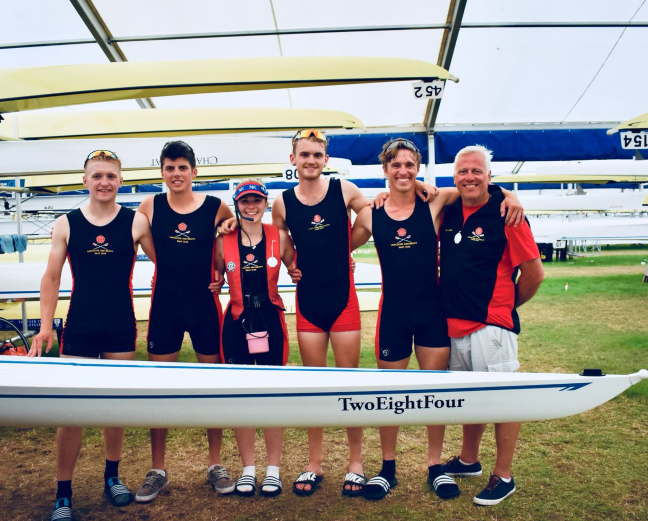
The course also allowed him to build his theoretical understanding of how rowers develop motor coordination and acquire skills. And he found that the constraints-led approach to coaching, which encourages learners to find their own solutions to movement problems, dovetailed nicely with some elements of his own practice. “I do a lot of my learn to row in single sculls,” he explains. “The feedback the individual gets from their efforts is instant, and I’ve found they will learn a lot quicker if it’s their own mistakes they’re trying to recover from.
“Now, when I’m offering someone guidance, I’m not necessarily trying to teach them how to row, but to develop the coordination required to gain that skill within rowing’s movement pattern. It widens the window of variation. Rather than being rigid and sticking to the gold standard movement we all try to achieve, it allows you to consider the individual and be more adaptive to them.” It’s something that’s particularly important when dealing with older athletes or those with previous injuries, he adds.
“That level of progress in a short period of time, that confidence building, is the thing that gives me the biggest buzz”
The L4 Diploma is equivalent to four out of the five modules needed for an MSc in Professional Coaching Practice and Tim is now working towards the master’s degree, which he will complete later this year. “My research is all around how coaches perceive skill, what the individual is going through to acquire skill, how they develop their training programmes to enhance the learning that the individual needs. I plan to interview 10 to 12 coaches of different levels of experience from around the country.”
So, where does he want to go from here? He now sees his role as supporting other coaches to develop their practice and building the sport from the ground up. “I’m still interested in coaching performance athletes, but I like where I am.”
Over the last year, he has introduced an improvers pathway to run alongside the learn to row courses at Durham. “At the end of six weeks there’s nothing for them to do as they’re not ready for racing. The obvious thing for me was to put in a development pathway to carry them forward. We now have really active improvers groups on Saturdays and Sunday. They’ve only been in place for the last calendar year because of restrictions, but they’ve proved to be really successful and our retention rate now over 70%. That’s a pretty good return.
“It’s taking somebody who’s scared witless to get into a boat and then in six or seven weeks they’re taking the boat out by themselves. That level of progress in a short period of time, that confidence building, is the thing that gives me the biggest buzz.”
Take your coaching further
If you’ve been inspired by Tim’s story and would like to enhance your coaching skills – or even dip a toe into coaching for the first time – then you can check out all our courses here.


